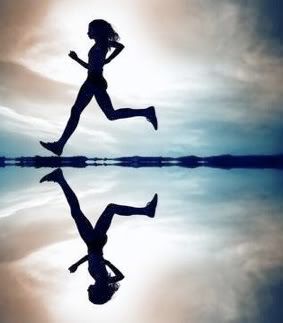Just as training is crucial for good performance in any sport, recovery is also pivotal to guarantee sustainable levels of optimal performance.
A few trustable wise practices can be your dependable aide to improving your body's recovery.
First on the list is stretching. I cannot emphasize enough the importance of stretching as an integral part of training in any physical exercise. After intense contraction during activity, muscles are left in an excited and tight state, which causes exhaustion and the pain sometimes experienced. To help recovery of the muscles, stretching them would assist in bringing the muscles back to a stretched and relaxed stage and is more favorable for speedy recovery.
Ice bath is a way to cool the excessive heat from those overworked muscles. Soaking the affected area for 5 to 10 minutes can do wonders for instant gratification from training by easing tensed and throbbing muscle tissues. For easier application, you can apply an ice pack to specific areas like the calf, quadriceps, hamstrings or joints. Ice pack application can be longer up to 15 or 20 minutes.
An alternative is to employ a hot/cold contrast bath. This takes effect by immersing the affected area of your body in hot water for 2 minutes, then switching to cold water for 2 minutes. This cycle is repeated for at least 3 times to encourage muscle relaxation.
For those who are willing to spend more money and time, a visit to a sport medicine centre would be a bonus. A sports massage there can soothe the specific muscles and provide added boost to the recovery process. With the professional attention, you can also ensure that specific joints are not strained from inappropriate stretching. Increasingly, amateur athletes would probably go for sports massage after a major race, as part of recuperative theraphy (and a reward as well!).
Of course we do not neglect the importance of healing from within. The intake of plenty of fluids and balanced nutrition is crucial after trainings / races. Typically, consumption of water and fluids must be sufficient beyond the point of thirst within 30 minutes of the end of your exercise. Subsequently, you should try to drink at least 250ml every hour until your urine is colourless (as opposed to yellow). In terms of nutrition, you should maintain adequate complex carbohydrates intake (e.g. staples like pasta, rice, noodles, bread, cereals, potatoes etc) within 2h post-race/training. This is because our body requires energy to remove the lactic acid built up during intense exercise, which causes muscular fatigue. The body also needs a steady intake of these carbohydrates to replenish the glycogen stores used up during your training. Be sure to maintain a balanced and healthy diet as your body needs all the nutrients it can get to come back stronger!
Sufficient rest and sleep is vital. With all the previous steps done, all the body needs now is to put those into work when you sleep. Many of the recovery still happens when you sleep. Worn out cells are repaired. New cells are produced. Metabolites are regenerated. Wastes and toxins generated during exercise are removed. Levels of body substances are returned to the optimal levels.







Post a Comment